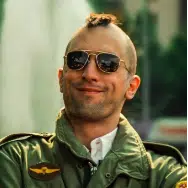
We all take for granted that, when we are going to watch a movie, we inevitably expect the best of it. No matter if it's a science fiction epic, a simple drama or a hilarious comedy, we end up developing a new relationship with the work each time, whether we hit play from our sofa or take a seat in a movie theater. That mutual understanding can be one of the most wonderful things and lead us to everlasting conversations, debating years later about what had once astonished us, but it can also be the other way around. We can bury in oblivion a work from which we expected something that, paradoxically, we never got. Expectations transform into disappointment, like it happens in romantic relationships.
But not much thought is given to the—almost—endless odyssey that entails making a movie. As a critic and analysis enthusiast, but also as an aspiring filmmaker, I have had the opportunity to participate in some shootings, and the chaos that breaks out can be unbearable for some. So, I ask myself—and also you—as viewers, should we acquire this knowledge to start to appreciate cinema more as such, or should we follow what our heart says without thinking about this artistic process? Who's responsible for making a "bad movie"? But also, what's a "bad movie"? Who decides?
For most people I know, Duke Johnson's second production in his "identity multiverse"—after planting his first huge seed with Anomalisa in 2015—might be one of the most boring films in the history of cinema. My 20-year-old self would have thought that, and it's totally understandable. But I'm not that age anymore, I'm not the same person, even though I do try to prevent losing part of my curious, childish essence. Yet I'm not a child anymore, I can't base my critical present on who I was. Yes, nostalgia is beautiful, but it can also be very destructive. Something similar happens to Paul Cole (André Holland), the protagonist of The Actor, the title in question. Based on Donald E. Westlake's novel Memory, this enigmatic adaptation alternates between telling a story and the way it's told. It's an act of both pure rebellion and bravery that might have been inspired by movies like Mulholland Drive or, the most evident case, Synecdoche, New York.

In the film, life's a stage, visually and narratively. It can be a beautiful dream, but also a nightmare. Nonetheless, I have no doubt that we all have a role in this work. An unscripted routine. An improvisation. We shape our way of being, traditions and pleasures based on an ideal we constantly hold onto, no matter what. This whimsical genesis is the cause of depression, frustrations and all kinds of negative feelings. But what happens when we can't even control a string of our own existence? We become our lost Paul: a marionette inside his own story. During the first seconds of this existentialist journey, the stiff background depicted with New York buildings fuses with a scene that seems a reflection of several unforgettable 50s noir classics: a man and a woman enter a hotel room blazing with relentless passion. Another man, whose face we can't see and who seems to be the woman's husband, kicks the door open, enters the room and, while the lover is getting ready to leave the scene, hits him with a chair. A voiceover narrates the following events…
"Tonight, on A Silent Heart, Paul Cole will wake up in a world where nothing is as it seems. A world where everyone knows their lines and the only thing that's real is home."
This metanarrative message presented by Johnson suggests we are before a matryoshka-shaped work. What's his movie about? Is it a normal film or a movie inside a movie that tries to tell us that our eyes are witnessing a movie? Paul wakes up in a hospital room, diagnosed with amnesia, but nothing makes sense. Everybody tells him he's an actor, but he doesn't feel like one. He's not in New York anymore but surrounded by the fog and loneliness of Jeffords, an isolated city in Ohio. He works in a tannery and lives in a room he rents to an adorable widower. He meets Edna (Gemma Chan), a mysterious, solitary woman with whom he quickly connects, but is this his actual story or the one he builds in his head? Unfortunately, The Actor is a huge combination of brilliant ideas that eventually wear out until they reach their anticlimax.

Unlike the "Fregolian" representation Johnson—together with Kaufman—presented in that great stop-motion movie, in The Actor, everything is narrated with duality. From the multiple roles to the Lynchian mise-en-scène and its protagonist's fragmented psychology, the story focuses on telling us the—mostly—emotional process that comes with not knowing oneself completely. Paul remembers his name but doesn't know who he is. Yet, isn't this something we ask ourselves occasionally? The initial enigma transforms into acceptance, Paul's mind only remembers Edna, who he connects with as if destiny was the only responsible for their connection, and he writes down his address in a piece of paper like Leonard Shelby in Memento. He desperately needs to return to his home in New York, but when he does, fear slowly appears. He doesn't feel at home.

The movie doesn't present resolutions nor answers questions easily. Like every psychological maze, it echoes its appeal through its premise, which promised certain existentialist madness and gives us chills, like the frozen New York streets at Christmas. Ultimately, we only need a pinch in the arm to realize we are in reality. Or, at least, the reality we believe in.
Published on ABRIL 17, 2025, 22:31 PM | UTC-GMT -3
If you liked this article remember to give it a 👉 LIKE, put it in your FAVORITES, COMMENT 🗣️ , and FOLLOW ME for more movie and series content 📽

















































View replies 1
View replies 0